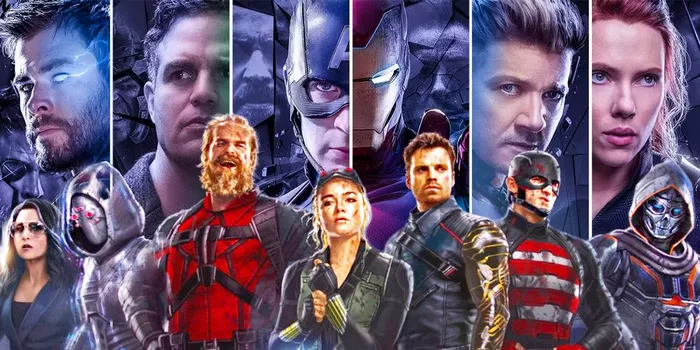As the Marvel Cinematic Universe (MCU) charts its ambitious course through Phase 4 and 5, the recent bombshell revelation from behind the scenes has shed light on the underlying challenges that have plagued the realm of MCU TV shows. The persistent struggle with inconsistent tone and pacing, which has often resulted in disjointed storytelling, now finds its roots in the absence of dedicated showrunners in previous projects. With Marvel Studios executives shouldering the responsibility of rectifying these issues solely in the post-production phase, the creative vision and cohesive narrative cohesion within individual episodes have suffered. However, amidst this creative quandary, a ray of hope emerges with Marvel Studios’ plans to pivot towards a new approach, one that involves the integration of showrunners in future TV shows. This crucial shift not only promises to foster a unified creative vision but also signifies a transformative step towards enhancing the overall storytelling experience within the MCU.
Unraveling the Puzzle of Inconsistent Tone and Pacing
The persistent struggle with inconsistent tone and pacing within MCU TV shows has emerged as a recurring challenge that has often undermined the immersive storytelling experience for audiences. While the Marvel Cinematic Universe has long been celebrated for its intricate narrative tapestry and compelling character development, the absence of dedicated showrunners in previous projects has left a discernible void that has impeded the seamless integration of tone and pacing within individual episodes. As the MCU endeavors to carve a distinct niche within the realm of television, the revelations from behind the scenes underscore the inherent complexities involved in maintaining a cohesive narrative thread that seamlessly aligns with the overarching vision of the franchise.
The Executive Predicament: Challenges of Post-Production Rectification
The burden of rectifying the inconsistencies in tone and pacing within MCU TV shows has primarily rested on the shoulders of Marvel Studios executives, who have sought to address these issues solely in the post-production phase. However, the limitations of this approach have become increasingly pronounced, highlighting the need for a more integrated and cohesive creative process that encompasses the pre-production, production, and post-production phases. As the complexities of storytelling within the MCU continue to evolve, the challenges of rectifying disjointed narratives solely through post-production interventions serve as a stark reminder of the inherent limitations that can impede the realization of a unified and immersive storytelling experience for audiences.
A Paradigm Shift: Embracing the Role of Showrunners in the MCU
Amidst the creative quandary that has plagued MCU TV shows, the recent revelations from behind the scenes herald a paradigm shift within Marvel Studios’ approach towards future projects. The decision to integrate showrunners into upcoming TV shows marks a transformative step towards fostering a unified creative vision and enhancing the overall storytelling experience within the MCU. By recognizing the pivotal role that showrunners play in shaping the narrative trajectory, character development, and thematic resonance of a series, Marvel Studios is poised to embark on a new era of creative collaboration that promises to elevate the quality and coherence of storytelling within the realm of MCU television.
The Promise of Coherent Storytelling: Daredevil: Born Again as a Pioneering Example
As the MCU looks towards the future with renewed optimism, the upcoming show “Daredevil: Born Again” stands as a pioneering example of the transformative impact that dedicated showrunners can have on the fabric of storytelling within the Marvel Cinematic Universe. With the integration of showrunners, the series holds the promise of delivering a cohesive narrative arc that seamlessly integrates tone, pacing, and character development, thereby immersing audiences in a captivating journey that resonates with the essence of the Daredevil legacy. By embracing the role of showrunners as key architects of the storytelling process, “Daredevil: Born Again” represents a significant milestone in the MCU’s evolution, underscoring the transformative potential that lies within the collaborative synergy between creative visionaries and the rich tapestry of the Marvel universe.
Concluding Reflections
As the MCU navigates the intricate terrain of Phase 4 and 5, the revelations from behind the scenes serve as a poignant reminder of the intricate complexities that underpin the realm of television storytelling within the Marvel Cinematic Universe. By recognizing the pivotal role of showrunners in fostering a unified creative vision and enhancing the overall storytelling experience, Marvel Studios has set the stage for a transformative shift that promises to elevate the quality, coherence, and immersive nature of MCU TV shows. Through a concerted focus on integrated creative collaboration and a nuanced understanding of the intricacies of storytelling, the MCU is poised to embark on a new era of narrative excellence, thereby cementing its place as a trailblazing force within the realms of cinematic and television storytelling.

